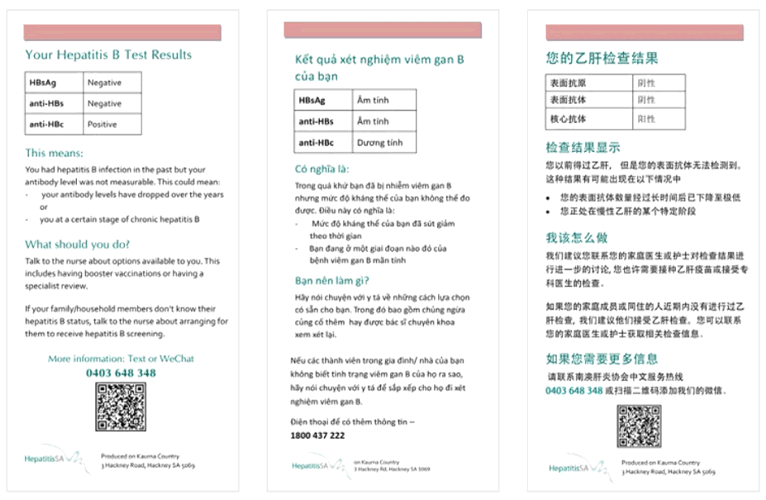To know if you are immune or if you have a current hepatitis B infection, or which stage your chronic hepatitis B is at, you will need to have a blood test done. Furthermore, if you have hepatitis B, speak to your doctor about testing for hepatitis D which is a virus that only infects people with hepatitis B and which can worsen liver disease. More about hepatitis D [external link].
For people unfamiliar with hepatitis B tests, the results might seem complex. Initial tests look for three markers, hepatitis B surface antigens, hepatitis B surface antibodies and hepatitis B core antibodies.
Different combinations of results of the these markers indicate different things. See these information sheets — available in English, Chinese and Vietnamese — for simple explanations.

Below is a summary of hepatitis B tests from SA Health.
| Test | What a positive result means |
|---|---|
| Hepatitis B surface antigen (HBsAg) |
|
| Hepatitis B surface antibody (HBsAb or anti-HBs) |
|
| Hepatitis B e antigen (HBeAg) |
|
| Hepatitis B e antibody (HBeAb or anti-HBe) |
|
| Hepatitis B core antibody (HBcAb or anti-HBc) |
|
| Hepatitis B virus DNA (HBV DNA) |
|










